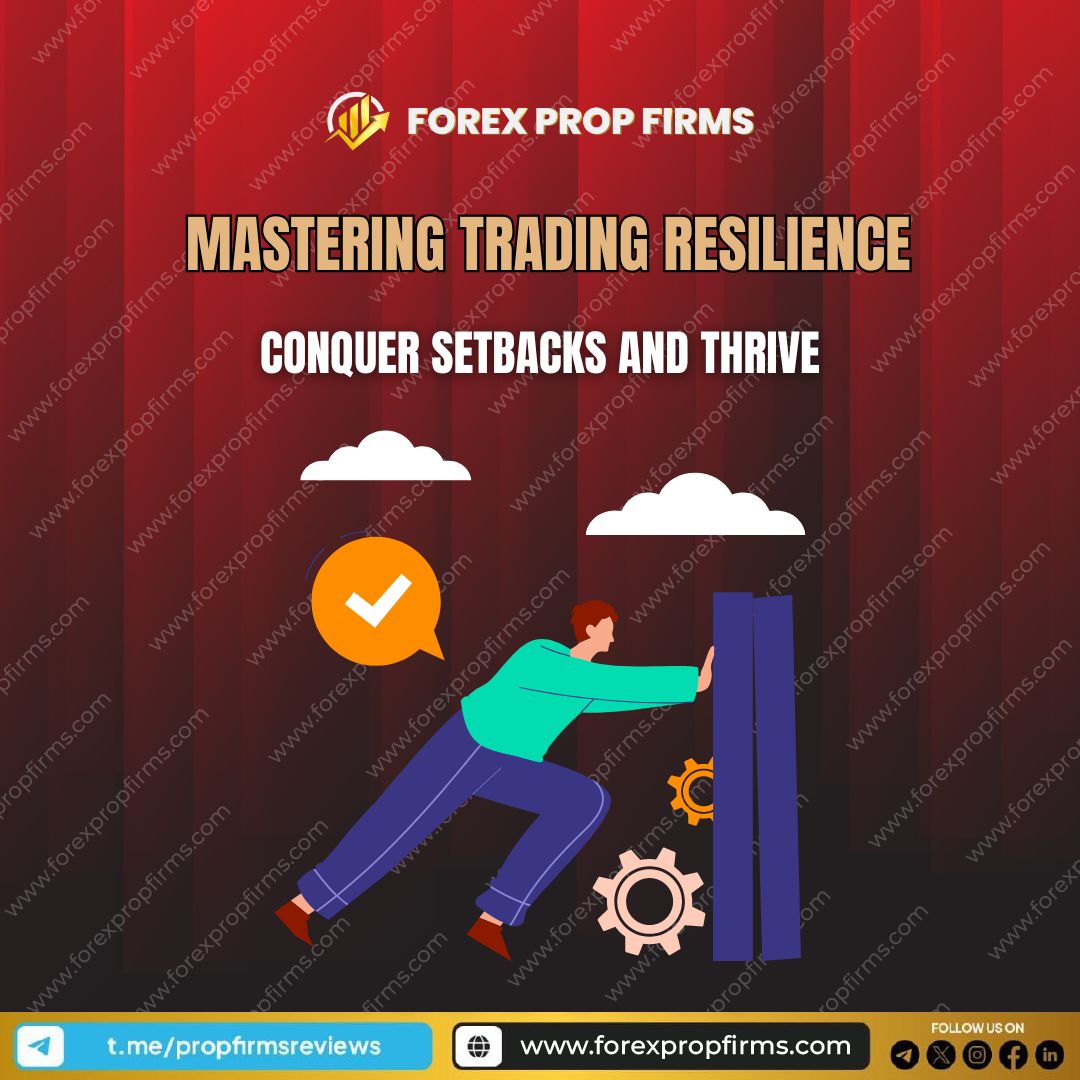
In the volatile world of trading, success often depends as much on mental toughness as it does on technical skills. Trading resilience is a critical trait that allows traders to bounce back from losses, manage stress, and continue pursuing their goals even in the face of adversity. This blog explores the importance of resilience for traders and offers practical strategies for building and maintaining it.
The Importance of Resilience in Trading
Resilience in trading is the ability to withstand market fluctuations, recover from setbacks, and continue executing your trading plan without letting emotions dictate your decisions. Trading resilience is essential because the market is inherently unpredictable, and even the most skilled traders will experience losses. By developing resilience, traders can maintain their focus and discipline, ensuring long-term success.
Developing a Growth Mindset
A growth mindset is a key component of trading resilience. Traders with a growth mindset view challenges and setbacks as opportunities to learn and improve rather than as failures. To cultivate this mindset:
- Embrace Learning: Continuously seek out new knowledge and skills, whether through books, courses, or mentorship.
- Accept Setbacks: Understand that losses are a natural part of trading and use them as learning experiences.
- Stay Positive: Focus on progress rather than perfection, and celebrate small victories along the way.
Overcoming Fear and Doubt
Fear and doubt can paralyze traders, leading to missed opportunities and poor decision-making. Building trading resilience involves learning how to manage these emotions effectively:
- Identify Triggers: Recognize the situations that trigger fear or doubt and develop strategies to manage them.
- Practice Mindfulness: Techniques such as meditation or deep breathing can help you stay calm and focused during stressful trading sessions.
- Reframe Negative Thoughts: Challenge and reframe negative thoughts by focusing on the facts rather than emotions.
Building a Support Network
A strong support network can be invaluable in building trading resilience. Surround yourself with like-minded individuals who understand the challenges of trading and can offer encouragement and advice:
- Join Trading Communities: Engage with other traders through online forums, social media, or local trading groups.
- Find a Mentor: A mentor with more experience can provide guidance and help you navigate difficult periods in your trading journey.
- Lean on Family and Friends: Share your trading experiences with close friends or family members who can provide emotional support.
Learning from Mistakes
Every trader makes mistakes, but resilient traders know how to learn from them. By analyzing your errors, you can make adjustments to your strategy and improve your performance over time:
- Keep a Trading Journal: Document your trades, including the rationale behind them, and review this journal regularly to identify patterns and mistakes.
- Conduct Post-Trade Analysis: After each trade, analyze what went well and what didn’t, and make necessary adjustments to your strategy.
- Stay Objective: Approach your mistakes with a logical mindset rather than an emotional one, focusing on how to improve rather than dwelling on the loss.
Practicing Self-Care
Maintaining your physical and mental health is crucial for sustaining trading resilience. A well-rounded self-care routine can help you stay focused, energized, and mentally sharp:
- Exercise Regularly: Physical activity helps reduce stress and boost mood, both of which are important for trading resilience.
- Eat a Balanced Diet: Proper nutrition fuels your brain and body, ensuring you have the energy and focus needed for trading.
- Get Enough Sleep: Adequate rest is essential for cognitive function and emotional regulation, both of which are critical in trading.
Setting Realistic Goals
Setting and achieving realistic goals is an important aspect of building trading resilience. By setting clear, achievable goals, you can maintain motivation and track your progress:
- Start Small: Set short-term goals that are easily attainable to build confidence and momentum.
- Be Specific: Define your goals in clear, measurable terms to make it easier to track your progress.
- Adjust as Needed: Be flexible with your goals and adjust them based on your progress and changing circumstances.
Resilience and Risk Management
Effective risk management is closely tied to trading resilience. By managing risk effectively, you can avoid catastrophic losses that could harm your confidence and ability to continue trading:
- Use Stop-Loss Orders: Protect your capital by setting stop-loss orders on every trade.
- Diversify Your Portfolio: Spread your investments across different assets to reduce the impact of any single loss.
- Risk Only What You Can Afford to Lose: Never risk more than a small percentage of your trading capital on any single trade.
Resilience and Emotional Intelligence
Emotional intelligence, or the ability to understand and manage your emotions, plays a crucial role in building trading resilience:
- Self-Awareness: Be aware of your emotional state and how it affects your trading decisions.
- Self-Regulation: Develop the ability to control your impulses and stay disciplined, even in emotionally charged situations.
- Empathy: Understand the emotions of other market participants, which can give you an edge in predicting market movements.
Resilience and Adaptability
The ability to adapt to changing market conditions is another important aspect of trading resilience:
- Stay Informed: Keep up with market news and trends to anticipate changes and adjust your strategy accordingly.
- Be Flexible: Be willing to change your trading approach if the market environment shifts.
- Embrace Change: View changes in the market as opportunities rather than threats.
Resilience and Perseverance
Perseverance is a key trait of resilient traders. Even when faced with repeated setbacks, resilient traders continue to push forward:
- Keep a Long-Term Perspective: Focus on your long-term goals rather than getting discouraged by short-term losses.
- Stay Committed: Remain dedicated to your trading plan, even when the results are not immediately apparent.
- Celebrate Small Wins: Acknowledge and celebrate your progress, no matter how small, to stay motivated.
Conclusion: The Power of Trading Resilience
In conclusion, trading resilience is a vital trait that can significantly impact your success as a trader. By developing a growth mindset, managing your emotions, building a strong support network, and learning from your mistakes, you can cultivate the resilience needed to navigate the ups and downs of the trading world. Remember, resilience is not about avoiding failure but about bouncing back stronger and more determined than before.
Call to Action: Strengthen Your Trading Resilience Today
Are you ready to build your trading resilience? Start by implementing the strategies outlined in this blog and watch as your ability to overcome challenges and achieve success in trading grows. Consider joining a trading community, finding a mentor, or enrolling in courses that focus on mental toughness and resilience in trading. Your future success in trading starts with resilience—build it today!
Let’s Understand Prop Firms
Looking for the latest Prop Firms updates? 😎
Follow our official social channels and never miss a bit!
🌐 facebook.com/propfirmsreviews
🌐 instagram.com/propfirms.reviews











